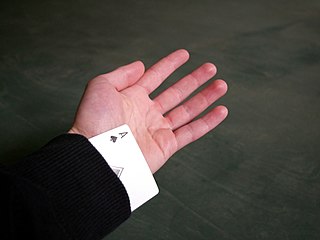Collectivism is the type of social organization.
An oligopoly is a market in which pricing control lies in the hands of a few sellers.
(The) Ring(s) may refer to:

A cartel is a group of independent market participants who collude with each other as well as agreeing not to compete with each other in order to improve their profits and dominate the market. A cartel is an organization formed by producers to limit competition and increase prices by creating artificial shortages through low production quotas, stockpiling, and marketing quotas. Cartels can be vertical or horizontal but are inherently unstable due to the temptation to defect and falling prices for all members. Additionally, advancements in technology or the emergence of substitutes may undermine cartel pricing power, leading to the breakdown of the cooperation needed to sustain the cartel. Cartels are usually associations in the same sphere of business, and thus an alliance of rivals. Most jurisdictions consider it anti-competitive behavior and have outlawed such practices. Cartel behavior includes price fixing, bid rigging, and reductions in output. The doctrine in economics that analyzes cartels is cartel theory. Cartels are distinguished from other forms of collusion or anti-competitive organization such as corporate mergers.

Cheating in poker is any behavior outside the rules of poker that is intended to give an unfair advantage to one or more players.
Price fixing is an anticompetitive agreement between participants on the same side in a market to buy or sell a product, service, or commodity only at a fixed price, or maintain the market conditions such that the price is maintained at a given level by controlling supply and demand.
Collusion is a deceitful agreement or secret cooperation between two or more parties to limit open competition by deceiving, misleading or defrauding others of their legal right. Collusion is not always considered illegal. It can be used to attain objectives forbidden by law; for example, by defrauding or gaining an unfair market advantage. It is an agreement among firms or individuals to divide a market, set prices, limit production or limit opportunities. It can involve "unions, wage fixing, kickbacks, or misrepresenting the independence of the relationship between the colluding parties". In legal terms, all acts effected by collusion are considered void.

Peter Victor Ueberroth is an American sports and business executive known for his involvement in the Olympics and in Major League Baseball. A Los Angeles–based businessman, he was the chairman of the Los Angeles Olympic Organizing Committee which brought the games to Los Angeles in 1984. Ueberroth was named 1984's Time Man of the Year for his success in organizing the Olympic games.
In criminal law, a conspiracy is an agreement between two or more people to commit a crime at some time in the future. Criminal law in some countries or for some conspiracies may require that at least one overt act be undertaken in furtherance of that agreement, to constitute an offense. There is no limit to the number participating in the conspiracy and, in most countries, the plan itself is the crime, so there is no requirement that any steps have been taken to put the plan into effect. For the purposes of concurrence, the actus reus is a continuing one and parties may join the plot later and incur joint liability and conspiracy can be charged where the co-conspirators have been acquitted or cannot be traced. Finally, repentance by one or more parties does not affect liability but may reduce their sentence.

Tacit collusion is a collusion between competitors who do not explicitly exchange information but achieve an agreement about coordination of conduct. There are two types of tacit collusion: concerted action and conscious parallelism. In a concerted action also known as concerted activity, competitors exchange some information without reaching any explicit agreement, while conscious parallelism implies no communication. In both types of tacit collusion, competitors agree to play a certain strategy without explicitly saying so. It is also called oligopolistic price coordination or tacit parallelism.
A collision is an isolated event in which two or more bodies exert relatively strong forces on each other for a relatively short time.
Major League Baseball collusion refers to owners working together to avoid competitive bidding for player services or players jointly negotiating with team owners.
United States v. Johnson may refer to a variety of cases heard by the United States Supreme Court:
Great Lakes Treaty may refer to:
Concerted activity may refer to:
This page is based on this
Wikipedia article Text is available under the
CC BY-SA 4.0 license; additional terms may apply.
Images, videos and audio are available under their respective licenses.



